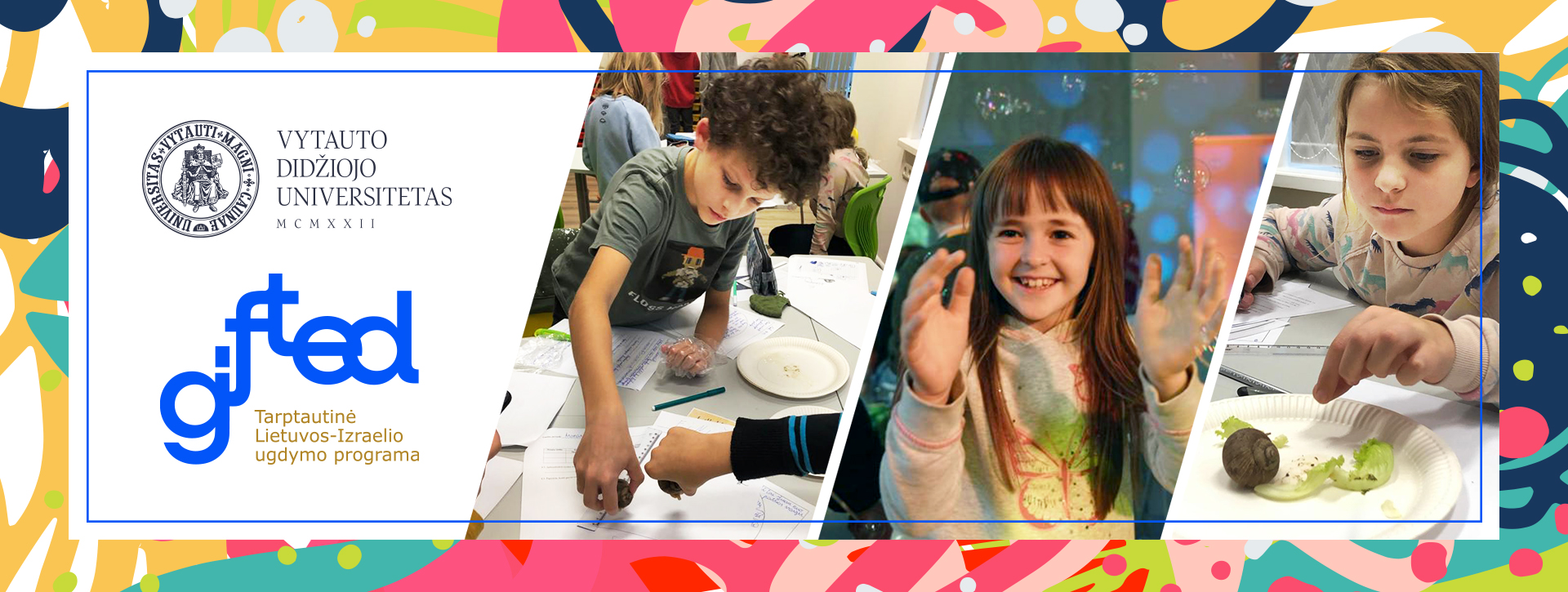Senior year modules for children under 18.
Art Therapy Module
Teacher Rasa Kirkaitė
Objectives
- To develop awareness of one’s own and others’ mental states, thoughts, and emotions (mentalization).
- To develop a sense of identity, discovery, and self-expression.
- Strengthening self-esteem.
- Some specific aspects of art therapy: safe space; development of learning coping strategies; expression, thinking, and speaking in therapy; creation of artwork; sessions are social, but cases are taken into account – non-forced verbal communication (in art therapy, one can express oneself and express feelings without words).
Topics
- Relaxation (liberating the imagination, giving freedom, getting to know each other, “a little bit of you, a little bit of me”).
- Emotions (circle of emotions, developing a vocabulary of emotions, analyzing different emotions and their influence).
- Being here and now (combined with mindfulness, learning to be in the moment, observing the environment, yourself and others).
- Inner world (fantasies, desires, dreams, fears…).
- Cognition through works of art (combining art therapy with music, film, and movement therapy, seeking support through works of art (“I see, hear, feel, am”).
Module “What do you live by? Me. You. We.”
Teacher Dr. Jurga Misiūnienė
Objectives
- To strengthen the perception of oneself, others, and oneself among others by examining topics of psychology relevant to students.
- To develop skills of disclosure and tolerance for the opinions of others.
Topics
- I know myself. Do you really?
- You (don’t) care about me!
- We cannot live without others…
- The self inside and out: the gift of disclosure.
Expected result: The main result of the module is the deepening of students’ social competences related to the ability to reveal themselves in communication and accept themselves and others as they are. For this purpose, in the first session, the gaze will be directed at oneself (“I”), in the second session – the people among whom we live (,,YOU“), and in the third – to our roles in communication and cooperation (“WE“). Broad topics provide direction for the discussion, allow students to choose specific subtopics that would correspond to their daily lives and be relevant. Thanks to active methods, participants are invited to raise questions, share their own and uncritically accept the opinions, views and beliefs of others. During the last meeting, students are assigned a creative task: to create a box that reflects the internal and external characteristics of the personality. This will require summarizing the insights gained in the sessions, employing imagination and using various tools that can be found in the classroom and outdoors.
Module “Forestry”
Teacher Aistė Virketė
Objectives
- To introduce the practices of awareness in nature (Science of Eco-Mindfulness)
- To encourage creativity in finding sustainable solutions to ecological problems.
Topics
- Mindfulness and nature, Forest bathing.
- Forest bathing. 1 Sense 1 – sight.
- Forest bathing. Sense 2 – taste.
- Forest bathing. Sense 3 – touch.
- Forest bathing. Sense 4 – smell.
- Forest bathing. Sense 5 – hearing.
Module “Young Politician”
Teacher Dr. Algis Bitautas
Topics
- Introductory lesson: what is politics and why is it needed? (The concept of the state)
- Political ideologies from the 19th century to the present:
- The ideology of liberalism.
- Catholic social ideas.
- The ideas of left-wing socialists.
- A comparison of the ultra-left and the right.
- Political ideas of the Third World.
- Ideas of recent decades.
- On the way from authoritarianism to democracy.
- The most influential personalities in Lithuanian history
- Elections.
- Globalization.




